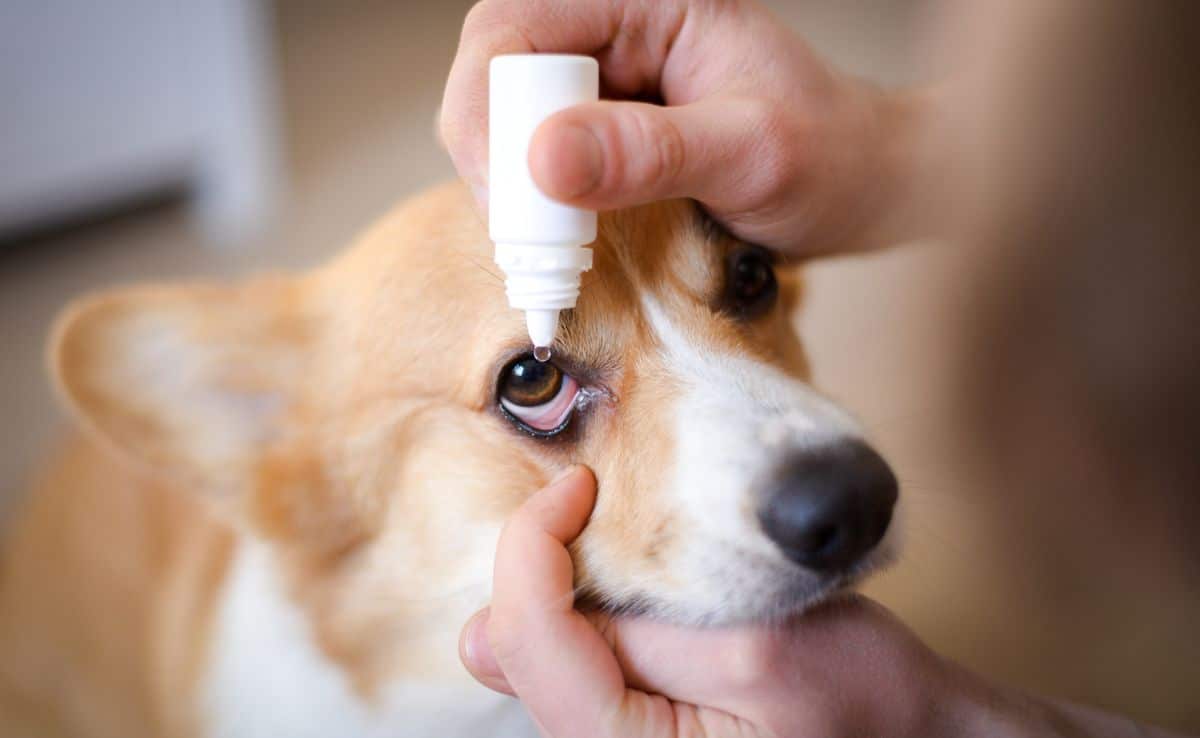Get A Dog, They Said. Suddenly, I’m Exercising, Socializing & Crying Less. Weird.
When you purchase through links on our site, we may earn a commission. Here’s how it works.
I didn’t get a dog for the health benefits. I got a dog because I apparently enjoy vacuuming twice daily and never peeing alone.
Table of Contents
But somewhere between the daily walks, forced small talk with strangers, and the steady stream of serotonin that comes from watching him mid-zoomies, I realized something: I actually feel better.
Turns out, science backs it up: Owning a dog can improve your physical, mental, and even cardiovascular health. Here’s what the research says about the health benefits of having a dog—and why I’m convinced my dog is the best life decision I’ve ever made.
1. Mood Booster On Four Legs
Depression affects more than 21 million U.S. adults—approximately 8.3% of the population, or roughly 1 in 12 people. Recent data suggests this number may be increasing, with a 2023 Gallup poll indicating that 17.8% of U.S. adults are currently experiencing depression.
While dogs aren’t a cure, research suggests they’re surprisingly effective at chipping away at the gloom.

Petting a dog can trigger the release of oxytocin (aka the “love hormone”), as well as dopamine and serotonin—chemicals associated with pleasure, bonding, and stress reduction. It’s the kind of neurochemical cocktail that helps people feel more connected, less anxious, and slightly less inclined to crawl back into bed at 10 a.m.
A national survey from Wisdom Panel revealed that 99% of dog owners believe their pets positively impact their mental health. In a systematic review published in BMC Psychiatry, companion animals were found to help people manage symptoms of mental health conditions, including depression and suicidal thoughts.
Dogs provide something more challenging to quantify but deeply important: a sense of empathy and emotional connection. In a qualitative study on pet ownership and serious mental illness, participants described their pets as sources of self-worth, connection, and emotional support.
As one individual shared, “When I was depressed, she would lay down on the bed next to me and put her paw across me, and I didn’t even have to tell her I was depressed—she’d just sense it.”
Routine also plays a quiet but crucial role. Caring for a pet creates opportunities for structure and activity. Feeding, walking, grooming—these small, repetitive tasks offer a sense of momentum and focus that can be especially helpful when motivation is scarce.
That Dog Smile Hits Different
Before adopting Rio, we were a cat household. As you might guess, dogs and cats operate on very different frequencies.
I’m obsessed with my cats. They are deeply affectionate—they follow me around, cry when they can’t find me, and treat my lap like rent-controlled real estate.
But there’s just something about a dog’s dopey, unfiltered grin that hits differently. The serotonin boost I get from Rio’s smile is becoming one of my most reliable mood lifters. It’s shockingly effective.
A Quick Word About Loss, Grief & Responsibility
It’s worth acknowledging that pets aren’t always a net emotional positive—especially when life gets messy.
Researchers in the same BMC Psychiatry study noted that some owners may feel overwhelmed by the responsibility of caring for a pet, particularly when their mental health is unstable. In a few cases, this led to feelings of helplessness or guilt that worsened depressive symptoms.
Likewise, losing a pet can be devastating. Participants described grief as deep and lingering, sometimes triggering depressive episodes. However, many also reported finding comfort in the memories of their pets, and some even felt renewed strength or peace over time.
The takeaway? While dogs can be powerful emotional anchors, they won’t make you immune to the emotional complexities of life.
2. Social Glue For The Socially Awkward
In today’s world, where social isolation is increasingly common, dogs can serve as unexpected facilitators of human connection.
Research shows that dog ownership increases the likelihood of casual social interaction, especially in urban or walkable neighborhoods.

In a study published in PLOS ONE, nearly 40% of dog owners said they had gotten to know people in their neighborhood they otherwise wouldn’t have met—just by walking their dog. Some even reported forming close friendships through dog-related encounters.
Beyond casual interaction, studies show dogs also help mitigate loneliness—particularly for people living alone or managing long-term mental health challenges.
A study exploring the power of support from companion animals for people living with mental health problems found that pet owners feel more confident entering new social situations when accompanied by their animal, find it easier to tolerate being around other people, and are more emotionally open during interactions. One participant put it plainly:
“When he comes and sits up beside you on a night, it’s different, you know, it’s just, like, he needs me as much as I need him, sort of thing.”
In a case study exploring the role of pet ownership in community integration, researchers found that the presence of a dog may help individuals overcome social barriers. A participant explained how walking his dog helped him navigate not physical barriers but invisible social ones:
“When Butch and I go out, we interact because he gets so much attention. With the attention focused on him, I can get engaged in all sorts of conversations with people who like dogs.”
A dog can act as a kind of emotional buffer for people struggling rejection sensitivity or social anxiety. They provide companionship without the unpredictability of human relationships—and sometimes, they help you survive small talk at the dog park.
How My Dog Accidentally Made Me Social
I moved to my neighborhood during the pandemic, which meant no casseroles, welcome notes, or awkward doorstep small talk.
I was okay with that. I’m an introvert with a well-documented preference for pajama walks and avoiding eye contact. But after getting a dog a few months ago, things shifted in ways I didn’t expect.
Neighbors I had never spoken to suddenly started waving, asking about my dog, and commenting on his weight loss progress like we were all part of the same accountability group.
I went from invisible to “Hey, how’s he doing with the leash pulling?” practically overnight. The social interaction was unexpected—but not unwelcome.
I’ve come to appreciate the quiet, low-stakes sense of community it’s created—one that revolves around fur, not forced conversation.
3. Your Built-In Personal Trainer
Most people don’t adopt a dog thinking, “This is going to revolutionize my fitness routine.” And yet, here you are—power-walking before 8 a.m. and logging more steps than you did with that gym membership you stopped pretending to use last March.
In one study, adults with a dog got an average of 30 more minutes of exercise per week than non-dog owners.

Another large-scale study in the UK found that one of the key health benefits of having a dog is increased physical activity—dog owners were nearly four times more likely to meet recommended exercise guidelines.
Adults who walk their dogs average over 160 minutes of activity per week, often without realizing they’re doing it—because it’s just part of “taking the dog out.” Turns out, it’s also cardio.
The benefits aren’t limited to adults either. A 2022 study found that children with dogs are more likely to hit their 60-minute daily activity target, a benchmark fewer than one in three kids currently meets.
That’s not just a win for public health—it’s a win for parents trying to get their kids off screens and into sneakers.
How My Dog Bullied Me Into Taking Breaks
I have a desk job, which means a lot of sitting and typing. While I’m generally active outside of work, I don’t always hit my step count—especially on deadline-heavy days. Getting a dog changed that.
Now, I have a built-in reason to get up, go outside, and move. My dog gives me the kind of judgmental stare that says, “We’ve been inside too long.”
The result? More movement, more sunlight, and slightly less doom-scrolling.
4. Nature’s Anxiety Pill (That Also Sniffs Trash)
Stress is inevitable. Deadlines loom, inboxes overflow, and someone always microwaves fish.
Dogs are remarkably good at helping us regulate—not by offering advice, but by simply existing in the moment. It’s one of the quieter health benefits of having a dog but one of the most impactful.
Several studies have shown that simply interacting with a dog—whether petting, playing, or just sharing a room—can reduce stress markers like cortisol and blood pressure. In one study, female participants who petted a dog for 15 to 30 minutes showed significantly lower cortisol levels afterward.

Beyond hormonal effects, human-dog interaction may also support the nervous system by increasing parasympathetic activity—the part of your autonomic nervous system that helps calm the body after stress. It’s the biological opposite of fight-or-flight, often called the “rest and digest” response.
These calming effects are so reliable that dogs are increasingly used as therapy and emotional support animals. Emotional support dogs help people manage conditions like anxiety, depression, and PTSD by providing consistent comfort and companionship.
Therapy dogs visit hospitals, schools, and disaster zones to provide stress relief in high-pressure environments. And yes, dogs can smell fear—which makes them remarkably intuitive at responding to emotional shifts, often before a person even realizes they’re struggling.
5. Brain Gains With A Side Of Slobber
Cognitive decline isn’t just about forgetting where you parked or why you opened the fridge. It’s also about how well you focus, recall, and make decisions—and according to research, pets may help keep those mental gears turning.

In one study, older, housebound adults who owned a dog or cat performed better on measures of attention, memory, and decision-making than those without pets. The authors noted that pet owners were more engaged and responsive during testing—likely because of the daily structure and low-stakes social interaction that comes with caring for an animal.
It’s not that dogs prevent cognitive aging—but they might slow the slide. Feeding schedules, walk routines, medication reminders, vet appointments, and “what’s in your mouth?!” moments all require mental energy.
Living with a dog essentially builds in a daily to-do list that keeps your brain working, even if the reward is just a wagging tail and a half-chewed tennis ball.
View our article on the best dog breeds for seniors.
6. Dogs: A Surprisingly Effective Painkiller
Dogs won’t fix a herniated disc or erase arthritis, but they might make living with pain a little more tolerable.
In a 2020 Mayo Clinic study, hospitalized patients who received brief visits from therapy dogs reported significant reductions in pain, anxiety, and overall distress—after just one session. That tracks with previous research showing that one of the health benefits of having a dog includes reduced pain intensity—especially during outpatient treatment.

It’s not just about distraction (though that helps). Petting a dog can trigger the release of feel-good chemicals like endorphins, serotonin, and oxytocin—all of which play a role in pain relief and emotional regulation.
In one 2012 study on fibromyalgia patients, participants reported significant reductions in pain and emotional distress after just a short interaction with a therapy dog during outpatient treatment.
Beyond the hospital setting, animal-assisted therapy is increasingly used for people with chronic pain conditions. A 2022 review in Pain Medicine concluded that companion animals may play a valuable role in managing long-term pain by promoting relaxation, reducing anxiety, and fostering a greater sense of control.
7. Allergies: Fight Dander With Dander
It sounds counterintuitive, but babies raised in homes with pets—particularly dogs or cats—are less likely to develop allergies and asthma later in life. According to a National Institutes of Health (NIH) study, infants exposed to pets in their first year had a lower risk of developing asthma by age seven.

Researchers believe this is due in part to what’s called the “mini-farm effect,” where early exposure to a diverse range of microbes from cats, dogs, and even their dander helps train the immune system not to overreact to allergens. In other words, some early-life fur and filth may build resilience.
But timing matters. This benefit only applies to early exposure. Getting a Labrador in your thirties won’t undo your tree pollen issues.
8. Fewer Sick Days, More Laughs
The health benefits of having a dog aren’t just mental—they might also keep you out of the doctor’s office.

In a long-term study, Medicare beneficiaries who owned pets had fewer doctor visits over a year than those without pets. The effect was most substantial among dog owners, likely due to the added physical activity and social interaction that comes with daily walks and canine-level routines.
And the benefits go beyond appointments and insurance claims. A meta-analysis published in Circulation found that dog owners were 31% less likely to die from heart attack or other cardiovascular issues than non-owners—a stat that’s hard to ignore, even if you’re skeptical of dog hair as a lifestyle.
There’s also growing evidence that pets, especially dogs, support gut health by increasing microbial diversity in the home. Outside Magazine reports that living with a dog can positively influence your microbiome, which plays a key role in immune function and inflammation. That’s right—your dog might give your gut a microbial upgrade every time he tracks in dirt.
9. Teach Kids Important Life Lessons
For kids, growing up with a dog isn’t just about companionship or Instagram content. It’s about learning things adults tend to overcomplicate—like responsibility, patience, and how to clean up after someone else without spiraling.
Studies show that children with pets often develop stronger emotional regulation and empathy. They’re also more likely to engage in prosocial behavior, like helping and sharing.

In fact, reading programs that pair kids with dogs have become popular in schools because children feel more relaxed and confident reading aloud to an animal that doesn’t judge their mispronunciations. One notable example is the Reading Education Assistance Dogs (R.E.A.D.) program, which has been implemented in various educational settings to support young readers.
Is Your Dog Secretly Your Therapist?
One of the greatest benefits of having a dog is the emotional support they provide.
Answer these quick questions to see how emotionally reliant you’ve become on your dog. No judgment—this quiz is just between you and the one who follows you into the bathroom.

1. Do you plan your breaks, meals, or bedtime based on your dog’s schedule?
- A. Constantly
- B. Occasionally
- C. I serve him. He is the schedule.
2. Do you talk to your dog more than to some coworkers?
- A. Absolutely
- B. It’s close
- C. I only talk to him—and frankly, the conversations are better.
3. Does your dog know when you’re stressed before you do?
- A. Yes, he’s basically a four-legged therapist
- B. Sometimes
- C. No, but he still judges me for it
4. Have you ever said, “he gets me,” and meant it?
- A. Weekly
- B. Once or twice
- C. I’m in too deep
5. Has your dog ever given you a look that felt more insightful than your last therapy session?
- A. Yes. The side-eye was surgical.
- B. Occasionally. It’s unnerving.
- C. No, but he does tilt his head when I cry.
Results
Mostly A’s: Your dog is your therapist, emotional support system, and life coach. Same.
Mostly B’s: You’ve got a balanced bond—and your dog knows just when to interrupt your overthinking with a cold nose to the leg.
Mostly C’s: You might not be emotionally dependent on your dog, but he’s definitely the one running your household.
PSA: Don’t Get A Dog Just For The Health Perks
Yes, the health benefits of having a dog are impressive—lower stress, better heart health, more movement, maybe even a longer life. But those perks are the byproduct of a real, ongoing relationship—not a one-time wellness hack.
Dogs require time, attention, money, and patience. They wake you up early. They occasionally vomit on rugs. And you’ll still need to walk them when it’s raining, snowing, or when you just don’t feel like moving.
So, no, you shouldn’t get a dog just for the cardiovascular boost or cortisol drop. But if you’re ready to take on the responsibility and commitment, the benefits are real—and deeply worth it.
Frequently Asked Questions
Still wondering if your dog is basically your unpaid life coach? We’ve got answers. Don’t see yours? Ask us in the comments!
Can Owning A Dog Improve My Mental Health?
Yes. Numerous studies have shown that one of the key health benefits of having a dog is improved mental well-being.
Dogs can help reduce stress, lower cortisol levels, and provide a sense of routine, emotional support, and connection—especially helpful for those managing anxiety or depression.
How Does Having A Dog Affect Physical Health?
Dog owners are more likely to meet recommended physical activity guidelines, have lower blood pressure, and report fewer doctor visits. Regular walks, daily routines, and oxytocin-boosting interaction all contribute to improved cardiovascular and immune health.
Can Dogs Help With Chronic Conditions Like Anxiety Or PTSD?
Yes. Emotional support dogs and service animals are often trained to assist people with chronic mental health conditions, including PTSD, by offering consistent comfort and helping regulate emotional responses.
Are There Any Downsides To Getting A Dog For Health Reasons?
Dogs are a long-term commitment. While the health benefits of having a dog are real, the responsibility can also be overwhelming—especially for individuals already struggling with mental health challenges.
It’s important to assess your lifestyle and resources before adopting.
What If I Can’t Have A Dog Full-Time? Can I Still Get The Benefits?
Even short interactions with dogs—such as through therapy dog programs or volunteering at a shelter—can offer reduced stress and improved mood. You won’t get the full range of benefits tied to ownership, but the oxytocin boost still applies.
Want More Science About Dogs?
If you’re nodding along thinking, “Wow, my dog really is improving my life,” you’re not wrong—the health benefits of having a dog are real, and we’ve got even more where that came from. Explore our top resources, including best emotional support dogs, exercises that you can do together, and tips for helping your pooch live longer.



